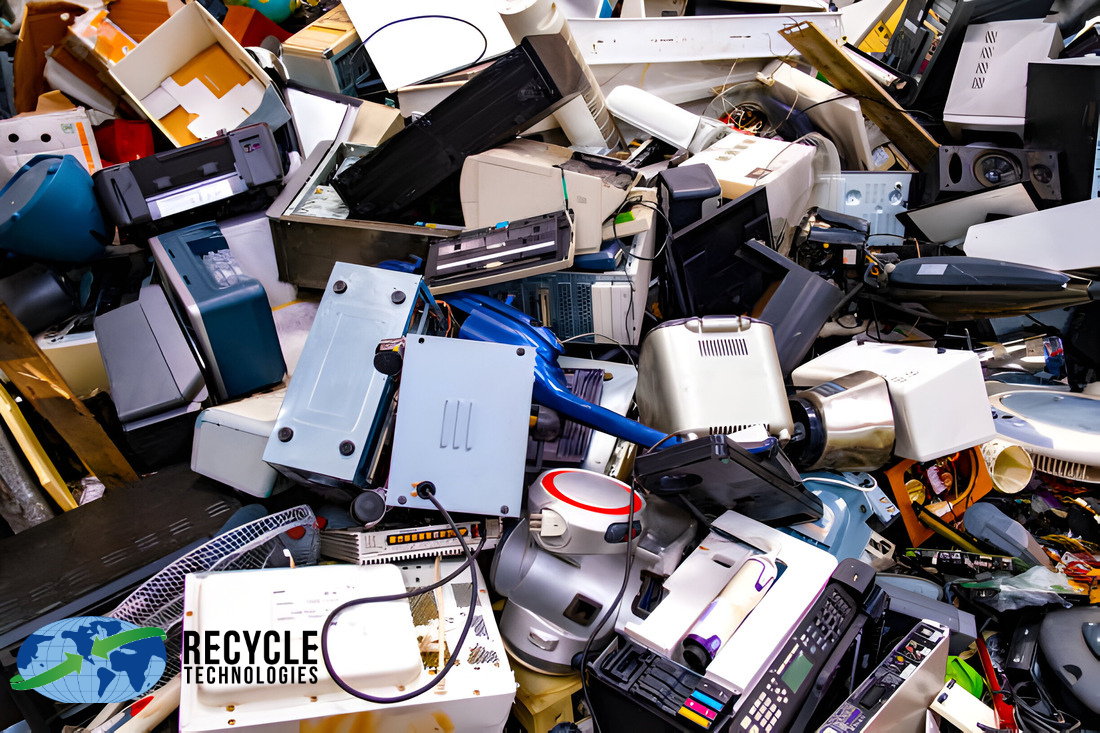Recycling is crucial, but many believe it alone cannot fully address the massive toxic hazards of discarding electronics. In the United States, e-waste recycling processes a lot of toxic material yearly. The problem arises when properly recycled materials leave behind some toxicity. A fundamental change is needed in how we design, produce, consume, and dispose of technology.
At Recycle Technologies, we believe in sustainability, with e-waste recycling as a solution to the toxic crisis. However, current fundamental policies for electronic recycling need a significant update. In the following blog, we will explore electronic waste management's nature and its current challenges.
Complexity of E-waste
E-waste behaves like a jumble of mixed things that need handling. For example, there are heavy metals like lead and mercury, which can destroy ecosystems. Some toxic substances are purely detrimental to the environment if they get out.
Here's the tricky part: When we throw away e-waste in landfills or incinerators, these toxic substances escape into the ground, water sources, and air. The problem arises when multiple toxic substances create havoc: other than metals and chemicals, we also have to deal with plastic and polyvinyl waste. These poisonous substances cannot be recycled together, and separating them is challenging. Even then, e-waste management is the best way to curb this toxic crisis.
Cause of E-waste
Today, the situation is entirely different, as we have countless electronic devices. Here are some grave statistics:
- Worldwide, people own 33 billion devices to connect to the Internet.
- That’s an average of 4.3 per person for every person on the planet.
- The average smartphone user changes their phone every 15–18 months.
- The expected lifetime of a PC is three years.
- The rate of product development and aggressive marketing have created a mindset where we expect to replace electronic products after a very short time.
Most of today’s electronics cannot be repaired, so they get thrown away when they stop working.
Difficulty in E-waste Recycling Process
While electronic recycling captures many hazardous materials like lead and mercury, some toxins get embedded in recycled plastics, glass, and metals. Products made from these recycled materials perpetuate the cycle of toxicity as they eventually turn back into waste. Toxic-free product designs are crucial.
E-waste is challenging to handle because of the nature of the components involved. Experts have to segregate and recycle materials such as alloys and plastics. It gives manufacturers no incentives to create products based on recyclability. Luckily, there are state laws that encourage manufacturers to bridge the gap. These laws and mandates need to be adequately implemented.
Lack of Manufacturer Responsibility
At Recycle Technologies, we understand that EPR (Extended Producer Responsibility) ropes in the producers with the financial responsibility of the e-waste toxic crisis. Waste recycling is a viable solution because both ways, upstream and downstream, to achieve a zero waste system, as ideal as it sounds.
State laws should mandate the bridging of consumers, manufacturers, and recyclers.
E-waste Recycling Solution: The Need for a Holistic Approach
To truly address the e-waste crisis, we require a more holistic approach. This includes designing electronics with end-of-life in mind, such as using fewer toxic materials and making devices easier to repair and upgrade.
We must also educate consumers about the importance of correct e-waste disposal. This awareness can empower individuals to make informed decisions about handling their electronic devices when they end their useful lives.
Conclusion
In conclusion, we should realize that even though e-waste recycling has some problems in the current recycling management system. However, there is great potential to transform the world sustainably using an updated e-waste management system.
Recycling Technologies exerts great effort to prevent landfills and incinerators from being the end place for all our electronic waste. We have proper facilities that break down and reassemble salvageable materials from the waste to be used again. In this way, we encourage every consumer to be aware of zero-waste systems and how to make them a reality.
Our services are for household and corporate e-waste alike. In addition to meeting your organization’s electronic waste management needs, we will recycle your old electronics following the state and our company’s established norms.












